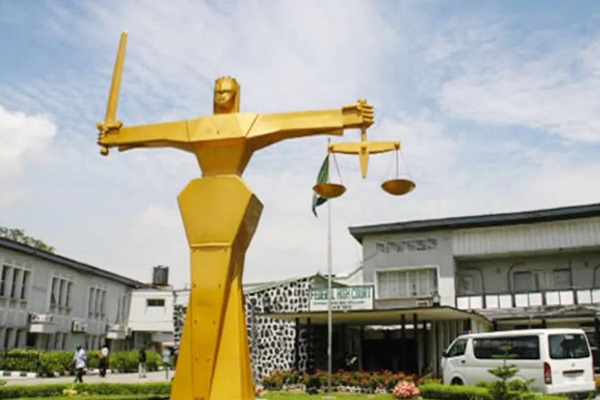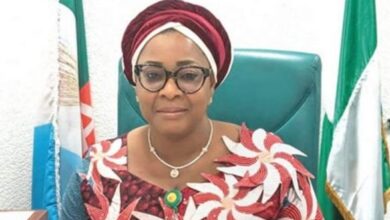Court fixes date for FCDA Director’s alleged forgery hearing

The Federal High Court in Abuja will hear a forgery case against FCDA Director Mrs. Odom Anita on June 16.
Justice Binta Nyako scheduled the hearing after plaintiff Njoku Ifeanyichukwu alleged academic discrepancies.
Meanwhile, the court will consider adding the FCTA as a defendant, following Uniport’s submission of related documents.
Mr. Ifeanyichukwu seeks orders compelling Uniport and FCDA to provide admission records and NYSC certificates.
Filed under suit FHC/ABJ/CD/929/2024, the case cites the FOI Act to demand transparency from all defendants.
During proceedings, plaintiff’s counsel noted Mrs. Odom’s team filed objections, challenging the suit’s validity and alleging malice.
Her lawyer linked the case to her support in a step-niece’s molestation claim against Mr. Uyaelumuo, investigated by NAPTIP.
Media coverage on TVC and Berekete Family FM amplified scrutiny, prompting Uyaelumuo’s alleged retaliation via proxies.
Mrs. Odom accused him of manipulating security agencies to embarrass her, dismissing claims as distractions from justice efforts.
The plaintiff allegedly petitioned institutions, accusing her of conspiracy, forgery, and job racketeering to tarnish her reputation.
“The rape suspect launched attacks to intimidate us,” Mrs. Odom stated, vowing to clear her name legally. The June 16 hearing will address adding FCTA and assess evidence in this high-profile public integrity battle.
As both sides prepare arguments, the case highlights tensions between accountability and vendettas in Nigeria’s bureaucracy. Mrs. Odom’s defense insists allegations lack merit, framing them as retaliation for her family’s molestation case.
NAPTIP’s investigation into the molestation case drew public attention, intensifying pressure on Uyaelumuo to respond. Mrs. Odom claims he recruited the plaintiff to file false charges, undermining her credibility.
Authorities must now weigh competing claims amid demands for transparency in governmental appointments. Observers await the court’s decision, which could set precedents for handling similar allegations.
The forgery case tests Nigeria’s legal framework for addressing corruption and personal vendettas simultaneously. Public trust hangs on the judiciary’s ability to separate facts from retaliatory tactics.
Mrs. Odom’s ordeal underscores vulnerabilities public officials face when advocating for justice in personal matters. Her family continues pushing for accountability in the unresolved molestation case.
With the hearing approaching, stakeholders urge thorough scrutiny of evidence to prevent politicization of legal processes. The outcome may influence future whistleblower protections and institutional accountability measures.
Both legal teams remain confident, promising vigorous arguments to defend their clients’ positions. Civil society groups monitor developments, advocating for impartiality in high-stakes public interest cases.
As the June 16 date nears, public interest grows, reflecting broader concerns about integrity in Nigeria’s civil service.
The court’s ruling will resonate beyond this case, shaping ethical standards for officials nationwide.
Post Views: 30




